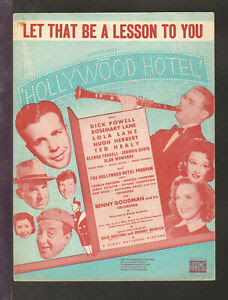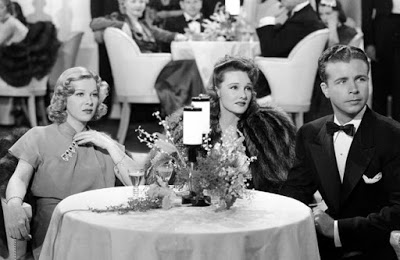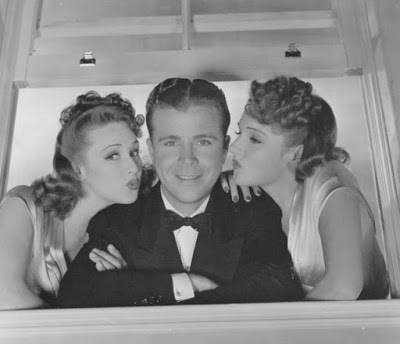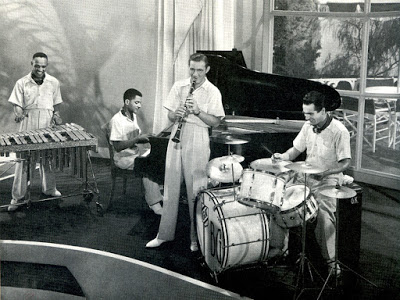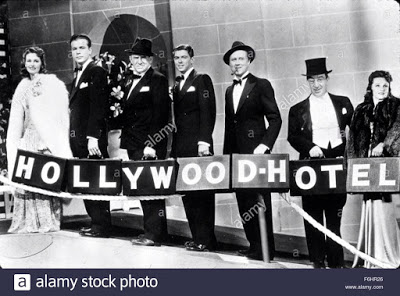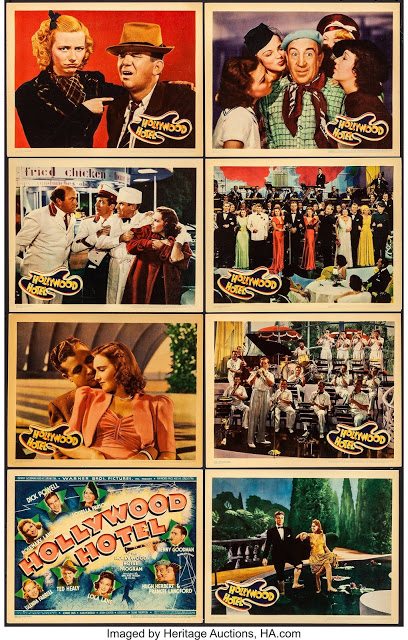Hollywood Hotel
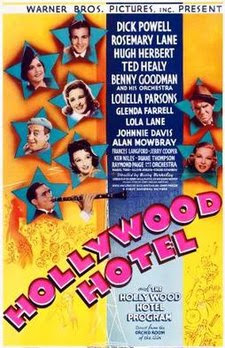
Director:
Busby Berkeley
Year: 1937
Rating: 6.0
I kept waiting
for the dancing to begin. After all this was directed by Busby Berkeley whose
trademark was intricate geometrical patterns of groups of leggy females either
shot from above or his fetish like close-ups of their legs and faces as they
don't so much dance as act as moving synchronized pieces on a board game.
His films such as 42nd Street, Footlight Parade, Dames and the Gold Diggers
films are all considered classics and his choreography is the reason why.
But by 1937 he was moving away from that style as he felt it was now overdone
to a more mature realistic dance style and was to direct even more musical
classics beginning with the Mickey Rooney/Judy Garland films and others.
But this falls into the middle of this evolution and completely discards
any dancing in the musical numbers as they are straight on singing or instrumentals.
